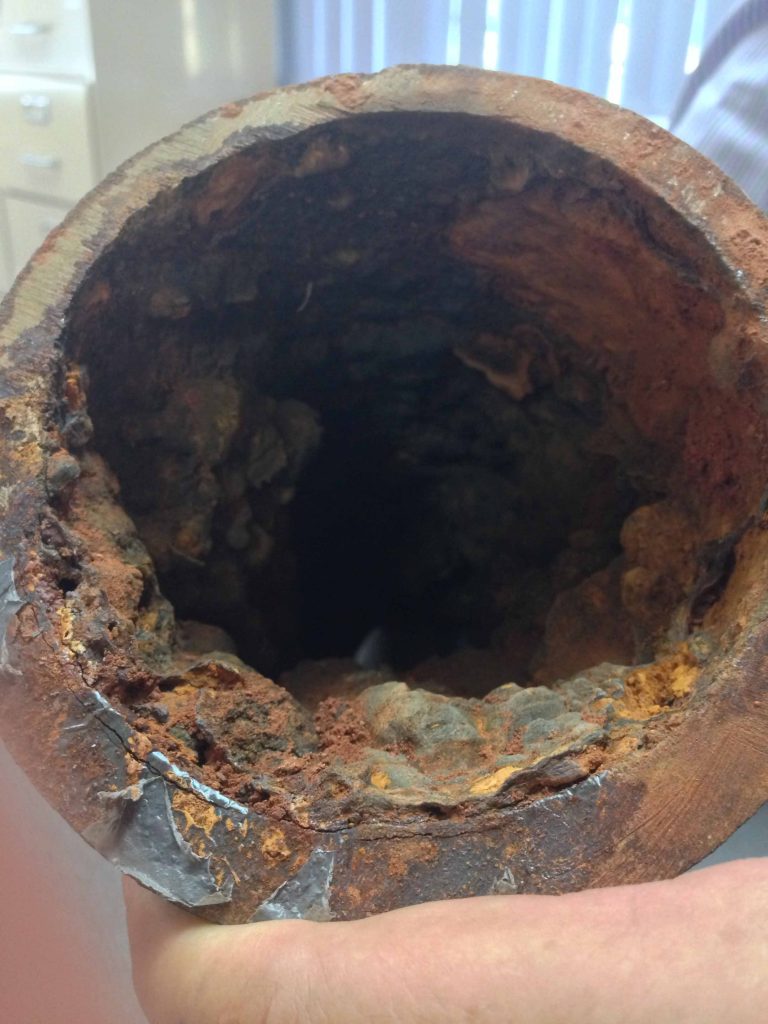
While summer in Cobar usually means dirty water, Cobar Shire Council says it has this year received above the average number of complaints.
Council’s general manager Peter Vlatko said dirty water is common in Cobar around
this time of year due to demand exceeding
the water filtration plant’s capacity, however over the past three months residents have been complaining the water coming out of their taps inside their homes has been dirty and, in some cases, their water is black.
Mr Vlatkto said council staff have been working to rectify the problem which
they have determined is caused by a corroded section of the town water supply pipeline.
Most of the 42km town water pipeline is constructed of asbestos cement pipes however an older 6km section of piping is cast iron.
“It’s the cast iron pipes that we’ve got in town that are reacting to the amount of chlorine that we have to put through the plant because of the increased volume of water that’s being used,” Mr Vlatko said.
“The plant is supposed to produce
4ML of water per day, it’s producing over 7ML.”
He said the increased demand is “normal at this time of the year” but the problem has been exacerbated by high organic levels in the raw water coming into the plant from Nyngan due to flooding.
Mr Vlatko said to combat the high organic content the quantities of chlorine and ash needed to be added during the filtration process have been increased to bring the water up to standard.
“The plant is producing good clean water but when it hits the pipes the chlorine is taking the rust out of the pipes and shredding it.”
He said the dirty water is not just contained to one area in town, and residents all over town have complained about varying degrees of discoloured water.
“It’s in the system. The house around the corner or your neighbours might not have a problem,” he said.
“It’s the huge amount of water going through the system that is pushing the dirty water everywhere.”
He said council has been in consultation with Hunter H2O water consultants who have advised that air scouring and ice picking will not remove the level of deposit that has now accumulated in the cast iron pipes.
“The only way to fix it is replacement,” Mr Vlatko said.
He said council staff have been talking with the NSW Public Water Solutions/Public Works’ design team to undertake a network analysis and get a scope of works for a replacement program and also a maintenance program.
It is envisaged the old cast iron piping would be replaced with a HDPE high density poly pipe or the industry standard Blue Brute pipes, both of which have a design life expectancy of 100 plus years.
The maintenance program would include air scouring and ice picking which will also be effective on the remainder of the existing piping network which is asbestos cement.
Mr Vlatko estimates it will cost around $6million to replace the 6km of pipeline.
